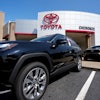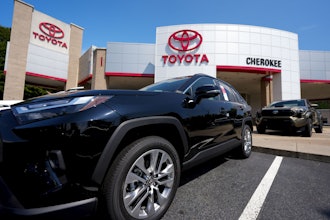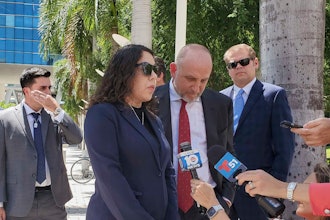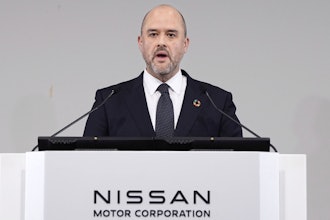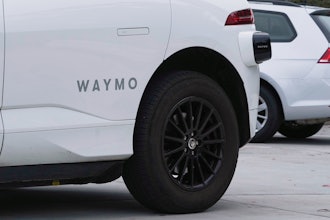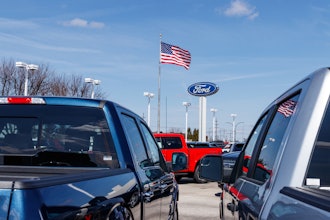A jury in Georgia has awarded $150 million to the family of a 4-year-old boy killed when a Jeep Grand Cherokee exploded into flames after being rear-ended three years ago. The jury said Chrysler, the maker of Jeeps, must pay nearly the full amount.
Jurors in Decatur County ruled Thursday that Chrysler acted with reckless disregard for human life in selling the family of Remington "Remi" Walden a 1999 Jeep with a gas tank mounted behind the rear axle.
Walden, of Bainbridge, Georgia, was killed when the Jeep driven by his aunt was hit from behind by a pickup truck in March 2012. The fuel tank leaked, engulfing the Jeep in flames and killing the boy.
The verdict comes nearly two years after Chrysler compromised with a federal safety agency and agreed to a scaled-down recall of some older-model Jeeps with the rear-mounted tanks. The tanks have little structure to protect them if struck from behind, making them susceptible to punctures and fires.
Federal documents show that at least 75 people have died in post-crash fires due to the rear-mounted fuel tanks.
The 11-woman, one-man jury ruled after a seven-day trial that Chrysler was 99 percent at fault for the crash and the pickup driver was 1 percent at fault. Jurors also determined that Chrysler failed to warn the family of the hazards of driving the Jeep. They ruled that the Waldens should get $30 million for Remi's pain and suffering and $120 million for the full value of his life, according to a verdict form.
Mike Palese, spokesman for Chrysler parent company FCA US, said the company is disappointed with the verdict and would appeal. Chrysler, he said, was prevented from presenting data submitted to federal safety regulators showing that the vehicles did not pose an unreasonable safety risk.
"The vehicles are not defective," Palese said.
Carl Tobias, a professor at the University of Richmond law school, said it will be difficult for Chrysler to overturn a jury verdict, but an appeals court might reduce the amount. He questioned Chrysler's decision to take the case to trial because of the horrific nature of the crash.
Tobias said the Walden verdict is likely to lead others to sue the company, or to speed along cases that are already in the system.
Chrysler has long contended that the Jeeps were no more dangerous than comparable SUVs built at the time. It used that argument to convince the National Highway Traffic Safety Administration in 2013 to allow Chrysler to recall 1.56 million Jeeps after the government agency initially recommended that 2.7 million be repaired. Under the recall, Chrysler agreed to install trailer hitches in the rear as an extra layer of protection.
Safety advocates have called the size of the recall and the fix inadequate.
Atlanta attorney Jim Butler argued during the trial that Remi's death resulted from the fire because of the gas tank's poor position. The child was on his way to a tennis lesson when the SUV was struck from behind.
"Numerous witnesses saw Remi struggling to escape and heard him screaming for help," the family's lawsuit alleged.
The lawsuit alleged that Chrysler placed the gas tank in a "crush zone" behind the rear axle and knew the location was dangerous, and that the company failed to protect the gas tank against rupturing.
Trial testimony showed that the compromise with safety regulators over the recall was worked out in a Chicago airport meeting between Fiat Chrysler CEO Sergio Marchionne, former Transportation Secretary Ray LaHood and ex-NHTSA Administrator David Strickland.
In a letter to Chrysler in 2013, NHTSA's Office of Defects Investigation told the company the Jeeps should be recalled. "The defects present an unreasonable risk to motor vehicles," the letter said, "because people ... have burned to death in rear impact crashes."

